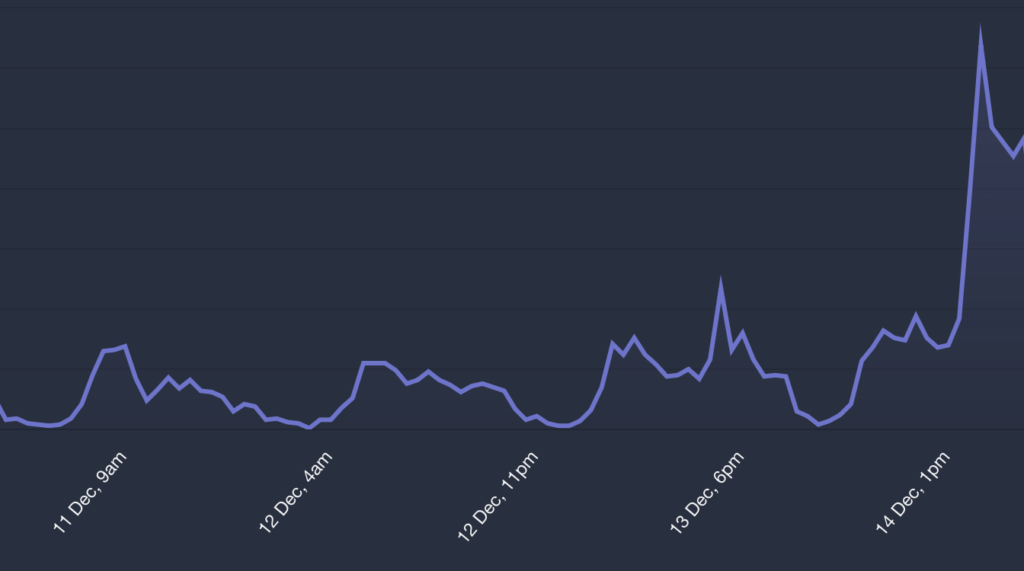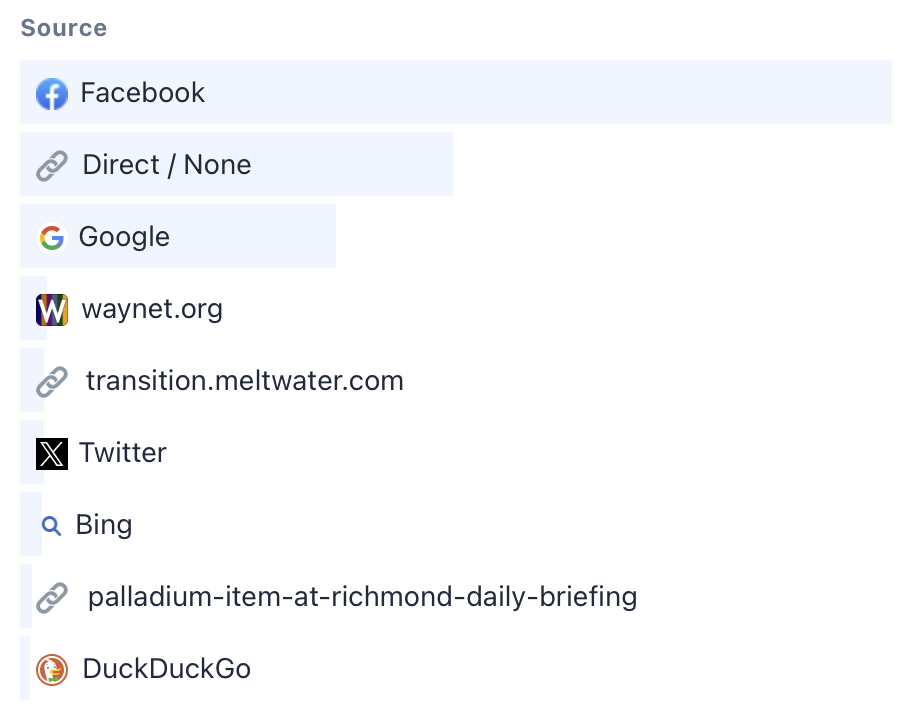I try not to spend too much time looking at our newspaper website analytics, but it is fun to see trends and where certain stories create unusual interest in and engagement with local news.
This is what it looked like this week when we broke some news about a huge win for the community, and as people began to realize and share about what it means:

Most of this traffic came from Facebook, where the article was being shared around and commented on hundreds of times:

(Strangely, the Gannett daily paper here has been sending us a fair amount of new visitors lately by including links to our coverage in their “daily briefing” emails that go out to their paid subscribers. That’s what the palladium-item-at-richmond-daily-briefing item is. I guess it helps fill in the gaps when they don’t allocate the resources to do as much of their own reporting.)
Of course, the central role of Facebook in sending people to our news articles is not necessarily a good thing. S. Mitra Kalita said it well in a piece for Neiman Lab this week:
Journalism is a mere memory on Facebook. The platform reminds me of this daily by serving up a historic feed of my life and the internet we once inhabited. In between photos of first days and family vacations, I scroll through headlines prefaced by lengthy anecdotes and diatribes, my “take” attached to facts backing me up.
Facts are a Facebook memory, too.
Nowadays, if users dare share, many relegate articles to “link in comments,” an algorithmic workaround so they might still reach friends and stand a shot at engagement. Maybe we’ll add a dancing gif or puppy pic to really grab your attention.
In 2024, this will not be enough to save democracy.
“Link in comments” won’t save democracy by S. Mitra Kalita
At least for today, even if we can’t save democracy, I’m glad that we can publish something that brings information, conversation and a little excitement to the community.

Leave a Reply